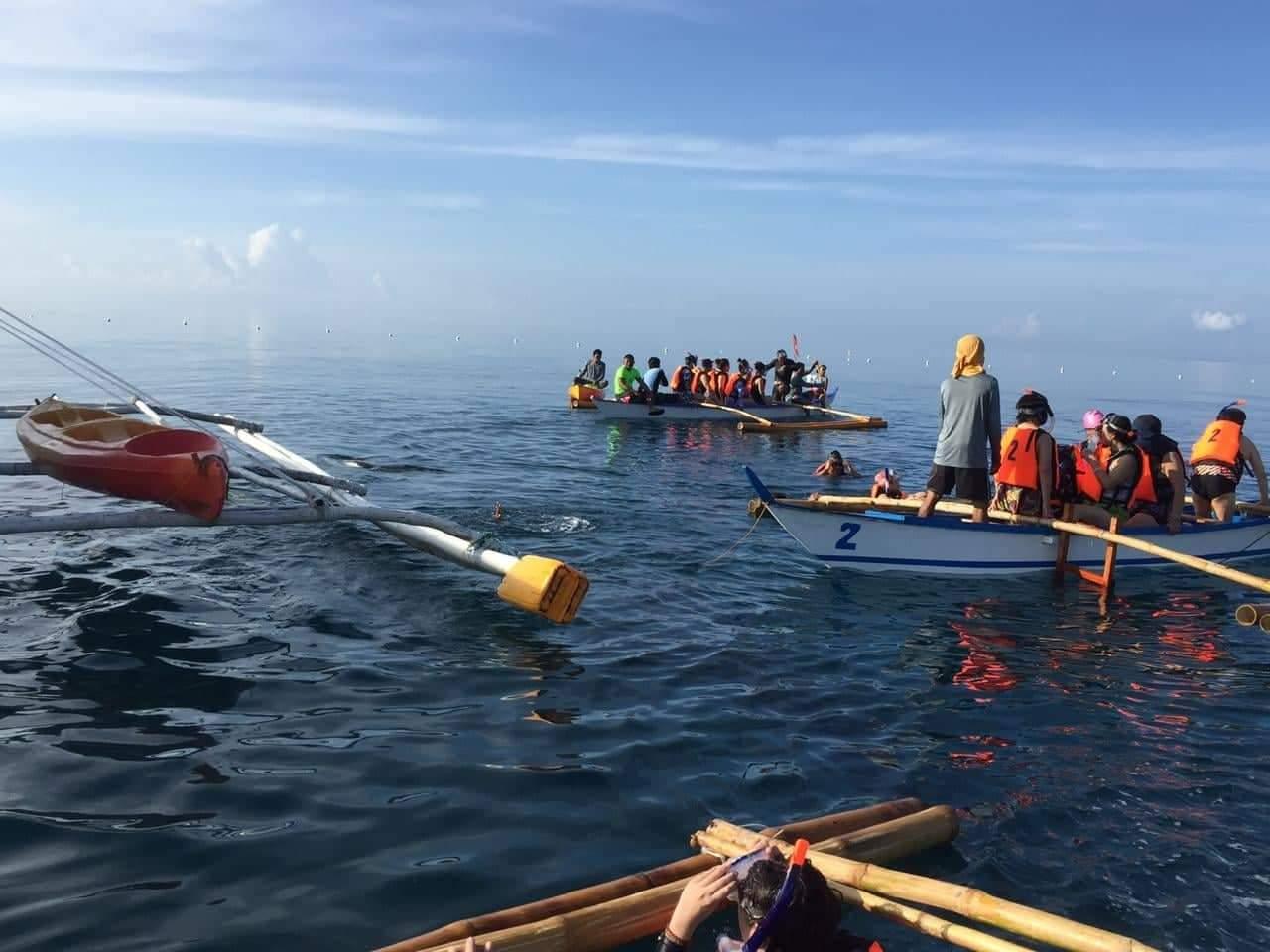
Whale watching and snorkeling in Barangay Taug in Lila, Bohol is the newest attraction in the province. (Photo by Nathan Mantua)
LILA, Bohol – Environmental advocates here have called on authorities to stop the practice of feeding whale sharks and also a stop to using the marine creatures as a major tourist attraction at the village of Taug, Lila town.
The Free The Whale Sharks Coalition-Bohol (FWSCB), composed of multisectoral groups, civil society organizations and concerned citizens, said the practice doesn’t only diminish the whale sharks’ ability to hunt for food, but it also puts them at risk of getting hurt.
A photograph of a tourist riding a whale shark, locally known as balilan, had recently gone viral on Facebook.
Another video caught some men feeding the whale sharks.
But Philip Quiño, one of the operators of the Taug Whale Shark Watching and Snorkelling, denied that there was feeding of whale sharks in the village.
“What is going on here is just whale shark watching and snorkeling. The whales are free to go and to hunt for food,” he said.
The presence of six to 13 whale sharks in the waters off Lila town had enticed tourists to visit the coastal village to interact with the “gentle giants.”
Entrance fee is P1,000 per person for foreign tourists while P500 for local tourists.
At least 130 tourists had encountered the biggest fish in the world in Lila since the town started the whale shark watching tour two weeks ago.
Boats carrying up to 10 tourists per trip bring the visitors to designated interaction areas, some 30 meters from the shoreline, to swim with the whale sharks.
The activity is allowed from 6-11 a.m.
Lawyer Alma Aparece, convener of FWSCB, insisted that tourists were still feeding the whale sharks.
“There are many things and contentions that they would really like us to believe. But we would still like to appeal to authorities to stop the feeding at all costs,” Aparece said.
The Bohol Sea has been one of the breeding grounds of whales and dolphins.
However, whale and dolphin population declined in the early 1990s due to rampant hunting.
Since then, sightings of these creatures became rare.
An outcry from local and foreign conservationists triggered the ban on the hunting of dolphins and whales.
The Philippines, one of the first countries in Southeast Asia with policies protecting marine mammals, banned the catching, selling, or transporting of dolphins and whales since 1992 through Fisheries Administrative Order 185.
Aparece said Lila’s new tourist attraction disrupts the whale sharks’ natural feeding behavior.
In an open letter to government agencies, FWSCB said the practice of feeding whale sharks should not be encouraged.
“In a country where rules and regulations are difficult to implement, we do not want Bohol to be another example of what not to do and what not to be,” the group said.
Whale sharks (Rhincodon typus) are protected marine wildlife governed by local and international protection laws. They are listed in both the Convention on International Trade in Endangered Species of Wild Flora and Fauna under Appendix II (CITES) and the Convention of Migratory Species (CMS).
As of 2016, whale sharks are considered endangered species according to the International Union for Conservation of Nature.
“Bohol and, we, the Bol-anons, must remain true to and continually pursue our eco-cultural identity and ideals,” said FWSCB.
The group called for a stop to the “illegal operation of the whale shark interaction tourism” at the village of Taug in Lila town.
“Let us let the whale sharks swim freely in Bohol and elsewhere,” the group said.

